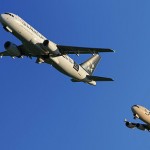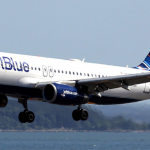Turkish Airlines – taking airline industry performance to another level

There are few inventions that have changed people’s way of life, and one of them is clearly the invention of the airplane.
It has forever changed the way in which people live, making it possible for everyone to visit and conduct business in places once considered inaccessible. In our days, the airline industry has progressed massively, becoming a major economic force.
There are few other industries that manage to generate the amount of attention given to airlines, not only from their customers, but from the media, government policy makers and almost anyone who has a story about a particular travelling experience.
As with any other big industry, the airline industry is highly capital-intensive and competitive. Because of its capital-intensive nature, entry costs and costs in general are quite high.
Competition in the airline industry is intense, as entry barriers are, on average, few and far between, due to the liberalization of the market, in part influenced by globalization. According to the IATA – International Air Transport Association, about 1,300 new airlines were established in the last 40 years.

Turkish Airlines – the success story becomes a case study at Harvard
When you have in place a successful performance management system, your story becomes a case study at Harvard Business School. Turkish Airlines is one conclusive example of performance improvement.
Their case study, published in 2015, is called Turkish Airlines: Widen Your World and it shows the company’s transformation from a regional actor to a global powerhouse in the international aviation industry.
Dr. Temel Kotil, the CEO of Turkish Airlines, visited the Harvard Business School in Boston and spoke to a class of second year MBA students, saying that:
“Ten years ago, Turkish Airlines was considered a regional airline. Today, we are one of the industry’s largest carriers serving 287 worldwide destinations to business and leisure travelers. We offer the largest number of countries and international destination choices to our passengers.”
Kotil, who was named the best CEO in Turkey by Harvard Business Review Turkey, continued:
“We went from being a national carrier to a global airline serving 113 countries in a short period of time and I’m truly honored to have had the opportunity to share our success story, our journey, with these brilliant, young minds at Harvard today.”
Europe’s best airline for six years in a row
The national flag carrier airline of Turkey, won for the sixth year in a row the title of Best Airline in Europe‚ in the 2016 Skytrax World Airline Awards, the Oscar of the aviation industry. As the carrier that flies to more countries than any other, Turkish Airlines is openly appreciative of feedback from passengers all over the world.
The airline currently flies to 290 destinations, in 115 countries across the globe. At the same gala, Turkish Airlines has picked up four awards this year which include Best Airline in Southern Europe, Best Airline in Europe, Best Business Class On-Board Catering and Best Business Class Dining Lounge.
These awards are very important because they are based on an independent survey that evaluates a traveler’s experience regarding a wide array of airport services, which afterwards measures those against various Key Performance Indicators.
In 2016, awards were based on the findings of over a million questionnaires, completed by individuals worldwide. The survey covered 550 airports, thus offering an unrivalled perception of the airline industry across the globe.
Have Turkish Airlines become a Business Model of the future?
In 1933, with only 5 airplanes, Turkish Airlines began its long journey. Over time, the number of aircrafts has increased to over 200 and that number will be doubled by 2020, to approximately 415 planes, according to Kotil.
In addition to this, the Turkish flag carrier has increased the level of passion and enthusiasm for service and quality. Turkish Airlines now has the youngest fleet in Europe and with upcoming aircraft orders, will only serve to maintain the fleet’s average age rate at this constant level.
From this point of view, the company should be a Quality Management and Strategic Planning model for the rest in the aviation industry and even other industries.
Turkish Airlines, as a brand and company, keeps growing and strengthening its position on the market. The company follows an effective strategy of turning industry-related opportunities to its advantage, thanks to its robust commercial strategies. In fact, Turkish Airlines is advancing confidently towards consolidating its position among the leading airlines in the global market.

If we take a closer look at the number of flights operated over a year, the number of passengers, the available flight hours and at their plans of sustainability for a better environment and efficient business processes – we are entitled to say that Turkish Airlines did a great job in setting its targets and KPIs.
Image sources:

Tags: Airlines performance, Performance in Turkey, Turkish Airlines





